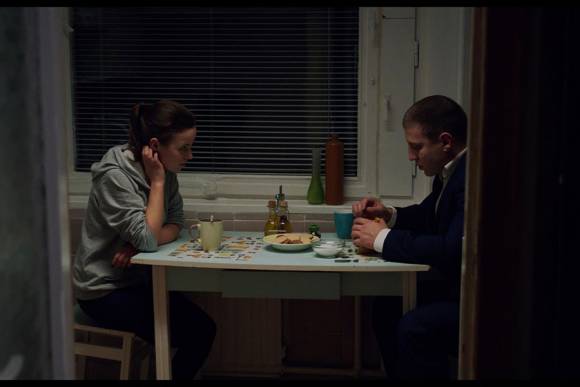 Total funding for film production and development provided by the Lithuanian Film Centre increased by 40 percent, from 2,568,616 EUR in 2016 to 3,599,560 EUR in 2017.
Total funding for film production and development provided by the Lithuanian Film Centre increased by 40 percent, from 2,568,616 EUR in 2016 to 3,599,560 EUR in 2017.
In 2017 the Lithuanian Film Centre issued 69 certificates representing a total of 3,756,205 EUR in rebates. A total of 35 films benefited from the incentives scheme: 13 national films, 15 international coproductions and seven commissioned films. All of them spent more than 19,315,294 EUR in Lithuania in 2017.
Total admissions increased by 10.6 percent in 2017 and total gross increased by 15 percent.
Admissions to domestic films increased by 22.9 percent and domestic gross by 28.5 percent.
The Lithuanian Parliament (Seimas) adopted a new Film Law on 12 December 2017.
PRODUCTION
In 2017 director Audrius Juzėnas shot his fourth feature film Owl Mountain / Pelėdų kalnas, with Kino gamyba producing. This historical drama will be released on 16 February 2018, the day when Lithuania celebrates the 100th anniversary of its Act of Independence.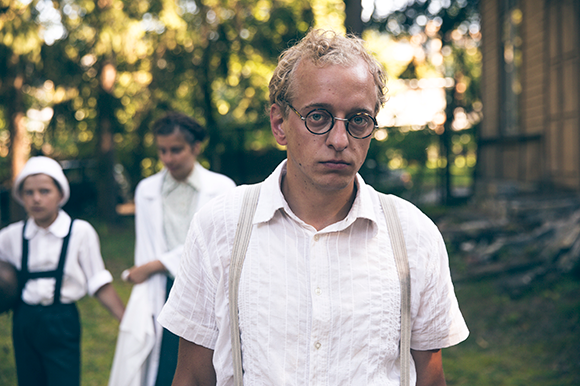
Ignas Jonynas also shot his new feature film Invisible / Nematoma in 2017. Invisible is a Lithuanian/ Ukrainian/Latvian coproduction between Revoliucijos idėja, Limelite and Locomotive Productions.
The acclaimed film, theatre and TV director Raimundas Banionis returned to film directing after 25 years with The Purple Fog / Purpurinis rūkas. This historical drama produced by Studija 2 will be theatrically released in 2018.
One of the most promising young Lithuanian directors and scriptwriters, Marija Kavtaradzė, started shooting her debut feature Summer Survivors / Vasara in August 2018. The film is a 100% Lithuanian production, produced by Marija Razgutė through M-films in coproduction with After School.
Also in 2017 the prominent Lithuanian documentarist Audrius Stonys worked together with the Latvian director Kristine Briede on their project Baltic New Wave, a creative documentary on Baltic documentary filmmakers from the Soviet times. This Latvian/Lithuanian/Estonian coproduction between VFS Films, Studio Nominum and Vesilind was one of the winners at the 2017 Meeting Point - Vilnius industry screenings.
In 2017 Giedrė Žickytė finished shooting her new creative documentary The Jump / Šuolis, produced by Lithuania’s Moonmakers in coproduction with Latvia’s VFS Films, France’s Faites un Voeu, Germany’s Sutor Colonko and Naked Edge Films (U.S.), which started filming in December 2015.
The partially animated feature documentary The L-Team / L-Komanda (See here) by director Andrius Lekavicius was also produced in 2017 with the premiere set for spring 2018. The film is produced by 360 laipsnių filmai in coproduction with Latvia‘s SIA Tanka.
International productions were attracted to Lithuania by the incentives scheme launched in 2014. In 2017 the Lithuanian Film Centre issued 69 certificates representing rebates of a total of 3,756,205 EUR. A total of 35 films benefited from the incentives scheme: 13 national films, 15 coproductions and seven commissioned films. All of them spent more than 19,315,294 EUR in Lithuania in 2017.
The following international productions used the incentive scheme in 2017: the TV drama Kruso, directed by Thomas Stuber and coproduced by Germany‘s Ufa Fiction GmbH and the local company Lietuvos Kino Studija, Going Vertical / Judėjimas aukštyn, directed by Anton Megerdichev, produced by Russia‘s Three T Production and serviced by Lithuanian Artbox, The Legend of Escape / Legenda apie pabėgimą, directed by Andrey Malyukov, coproduced by Russia‘s Foundation of National Cinema Patriot and the local company Artbox; Orange Fever / Oranžinė karštligė, directed by Pim van Hoeve, produced by Gek van Oranje (Netherlands) and the local coproducer Artbox; Swamp / Pelkė, directed by Camilla Stroem Henriksen and produced by Hummelfilm (Norway, Sweden) in coproduction with Lietuvos Kino Studija; Instrument of War / Tikra drąsa, directed by Adam Thomas Anderegg, produced by Kaleidoscope Pictures (U.S.) in coproduction with the local production company Baltic Film Services; Tulips, Love, Honour and a Bike / Tulpės, meilė garbė ir dviratis, directed by Oscar-winning Mike van Diem, produced by FATT Productions (Netherlands) in coproduction with the local coproducer Artbox.
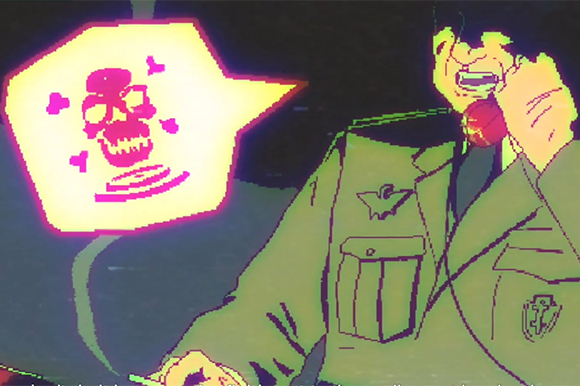 DISTRIBUTION
DISTRIBUTION
Lithuanian films had a tremendous year at festivals. The world premiere of Frost / Šerkšnas by Sharunas Bartas took place within the Directors’ Fortnight at the 70th Cannes Festival in May 2017. Then the film travelled to several important film festivals including Locarno and Odessa. It was screened at the Riga IFF and also at the Minsk FF, where Bartas received the Best Director Award. Frost has been chosen as the official candidate from Lithuania for an Academy of Motion Pictures Arts and Sciences nomination in the Best Foreign Language Film category. The film is a Lithuanian/Ukrainian/French/Polish coproduction, produced by Studija Kinema, France‘s Kino Elektron, Poland’s Donten & Lacroix Films Sp. z o. o. and Ukraine‘s TatoFilm.
The tragic comedyMiracle / Stebuklas directed by Eglė Vertelytė, had a major success not only in Lithuania, but also abroad. This Lithuanian/Bulgarian coproduction between In Script and Geopoly was the first Lithuanian film selected for the Toronto IFF in over 15 years.
The feature film Emilia / Emilija iš Laisvės alėjos, directed by Donatas Ulvydas, had screenings for the American film industry representatives and the Lithuanian community in the U.S., and also at the Canadian Film Institute. Emilia was produced by Fralita Films in coproduction with Ulvyds.
Arūnas Matelis‘s documentary Wonderful Losers: A Different World / Nuostabieji lūzeriai. Kita planeta premiered at the Warsaw FF and won awards for best documentary at both Warsaw and Minsk festivals. The film is a Lithuanian/Italian/Belgian/Swiss/Irish/British/Spanish/Latvian coproduction, produced by: Nominum, VFS FILMS, Stefilm International, Associate Directors, DOKMobile, Dearcán Media, Planet Korda Pictures and SUICA Films.
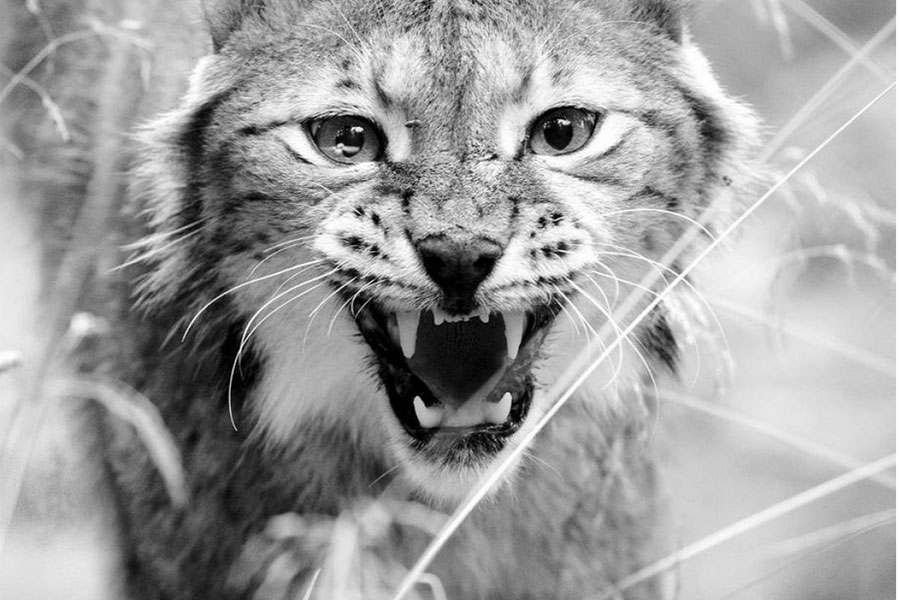 The long documentary The Ancient Woods / Sengirė, directed by Mindaugas Survila, was selected for the 2017 IDFA in Amsterdam. The production companies behind the film are Lithuania‘s Sengirė, Germany‘s Ma.ja.de Filmproduktions and Estonia‘s OU Vesilind.
The long documentary The Ancient Woods / Sengirė, directed by Mindaugas Survila, was selected for the 2017 IDFA in Amsterdam. The production companies behind the film are Lithuania‘s Sengirė, Germany‘s Ma.ja.de Filmproduktions and Estonia‘s OU Vesilind.
The Lithuanian/German coproduction What We Leave Behind / Liebe Oma, Guten Tag!, directed by sisters Jūratė Samulionytė and Vilma Samulionytė, was selected for the 59th Nordic Film Days Lübeck and the 34th Kassel Dokfest. The film was produced by Lithuania's Tremora in coproduction with Germany‘s Dagstar Film.
Eleven new Lithuanian films were released in 2017, including Frost directed by Sharunas Bartas, Emilia directed by Donatas Ulvydas, The Saint / Šventasis directed by Andrius Blaževičius, Miracle directed by Eglė Vertelytė, the black comedy Zero III directed by Emilis Vėlyvis and produced by Kino Kultas and NeverEver.
ACME Film, which was established in 1999 and is still the largest film distributor in the Baltics, distributes films from Sony Pictures, Warner Bros., Lionsgate/Summit Entertainment and numerous other independent producers. The company distributes the films theatrically, on DVD, VOD and on TV. In 2017, ACME film distributed the Lithuanian feature Emilia directed by Donatas Ulvydas. In 2017, ACME Film had revenues of 7,137, 244 EUR and 1,432,497 admissions from a total of 72 titles.
Garsų Pasaulio Irašai (GPI) is the largest video distribution company in the Baltics and also the exclusive distributor of Sony Pictures HE in the Baltics.
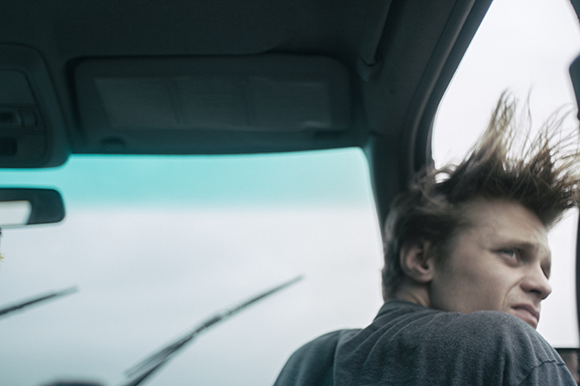 EXHIBITION AND BOX OFFICE
EXHIBITION AND BOX OFFICE
There are 79 screens in Lithuania, which is too small a number in order to provide access to films in smaller cities. „There are too few screens in Lithuania and even fewer independent cinemas, so it’s quite difficult to book more than four or five screens for the release week“, Greta Akcijonaite, the co-owner and manager at Kino Pasaka, a distribution, exhibition, film education and audience projects’ development company in Lithuania, told FNE in June 2017, when she was FNE‘s Distributor of the Month.
The pan-Scandinavian Forum Cinemas, owner of the largest chain of movie theaters in the country (76% of the market share), has six multiplexes with 40 screens, all fully digitalised since 2012. In 2016 Forum Cinemas joined the Nordic Cinema Group (NCG) and in 2017 the NCG was bought by the global AMC/Odeon.
The Polish-owned multiplex Multikino, which opened in Vilnius in 2010, has seven screens with 1,673 seats. Baltic Multiplex Ventures, which is the owner of the Cinamon multiplex in Kaunas, invested 1.6 m EUR in its five screening rooms with over 1,000 seats.
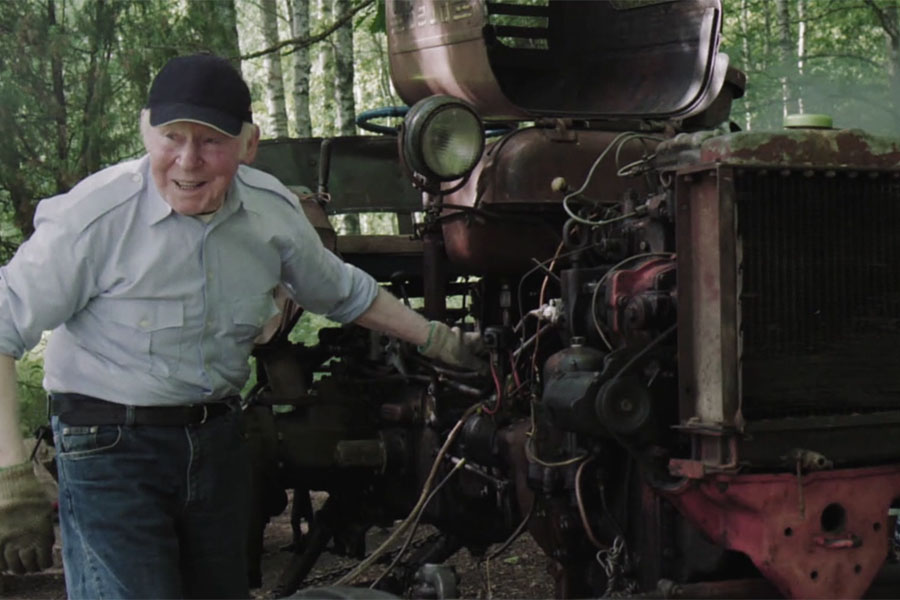 Kino Pasaka, which was founded in 2009 as an art house movie theater in Vilnius and is still the only private art house cinema in Lithuania, offers two screens and a VOD platform, and also distributes films in Lithuania and the Baltic states. Its VOD platform e.kinopasaka.lt was launched in September 2016.
Kino Pasaka, which was founded in 2009 as an art house movie theater in Vilnius and is still the only private art house cinema in Lithuania, offers two screens and a VOD platform, and also distributes films in Lithuania and the Baltic states. Its VOD platform e.kinopasaka.lt was launched in September 2016.
A total of 309 films screened in Lithuanian cinemas in 2017 with 4,060,159 admissions through 31 December 2017, compared to 3,668,370 admissions in 2016. Total gross was 20,392,625 EUR compared to 17,724,516 EUR in 2016. Total admissions increased by 10.6 percent in 2017 and total gross by 15 percent.
A total of 15 Lithuanian films (including 11 premieres) screened in cinemas in 2017. All of them were produced with state support - six of them were financed by the Lithuanian Film Centre and ten of them used the tax incentives scheme.
Admissions to domestic films increased by 22.9 percent from 699,207 in 2016 to more than 860,000 in 2017. Domestic films‘ box office increased by 28.5 percent from 3.5 m EUR in 2016 to 4.5 m EUR in 2017.
The average ticket price slightly increased from 4.83 in 2016 to 5 EUR in 2017.
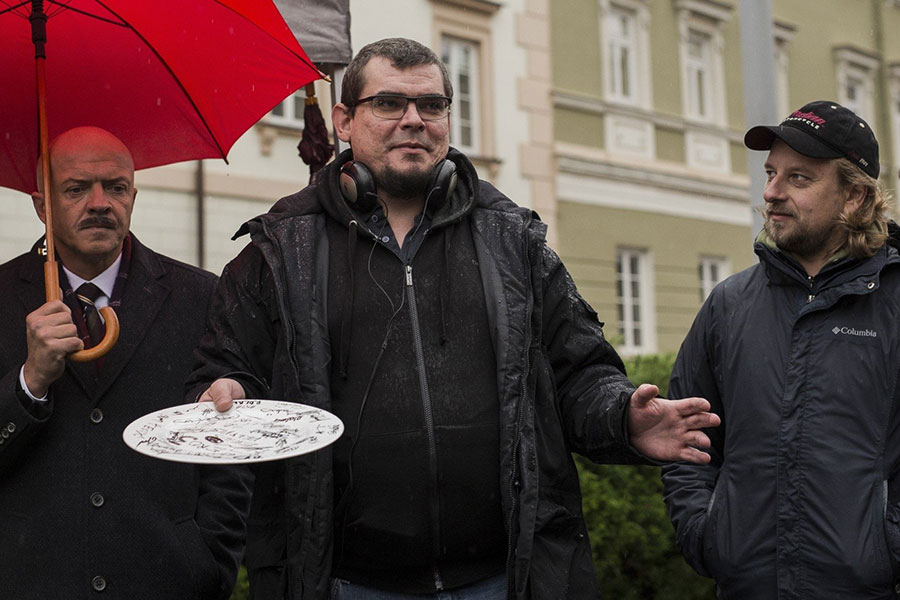 The most profitable Lithuanian movie at the national box office in 2017 was the comedy Three Million Euros / Trys milijonai Eurų, directed by Tadas Vidmantas and produced & distributed by Vabalo filmai. The film was released on 27 October 2017 and had more than 235,667 admissions and 1,304,887 EUR gross until the end of 2017.
The most profitable Lithuanian movie at the national box office in 2017 was the comedy Three Million Euros / Trys milijonai Eurų, directed by Tadas Vidmantas and produced & distributed by Vabalo filmai. The film was released on 27 October 2017 and had more than 235,667 admissions and 1,304,887 EUR gross until the end of 2017.
The third part of Emilis Vėlyvis‘s famous trilogy Zero III drew more than 194,486 viewers, earning 1,008,470 EUR . Zero III was produced by Kino Kultas and NeverEver, and it was released by Cinema Cult Distribution. The film was also theatrically released in Great Britain and Ireland.
Emilia / Emilija iš Laisvės alėjos, directed by Donatas Ulvydas and released by Acme Film, had 124,162 admissions and 578, 619 EUR gross since its premiere on 16 Febuary 2017.
The comedy Kaip susigrąžinti ją per 7 dienas, directed by Andrius Žiurauskas, produced and released by Singing fish, had 89,616 admissions and 465,368 EUR gross since its premiere on 6 October 2017.
The comedy Klasės susitikimas: berniukai sugrįžta!, directed by Kęstutis Gudavičius, produced and released by Vabalo filmai, had 64,271 admissions and 378,882 EUR gross since its opening on 29 December 2017.
The comedy Poilsiautojai. Pavydo žaidynės, directed by Simonas Aškelavičius, produced and distributed by Full Screen, was released on 24 November 2017 and had more than 50,710 admissions and 281,885 EUR gross until the end of 2017.
Andrius Blaževičius’s debut feature The Saint / Šventasis, winner of the 10th Lithuanian Film and TV Silver Crane Awards 2017 in six categories (best feature film, best director, best actor, best supporting actor, best supporting actress and best script), drew more than 46,856 viewers and earned over 243,062 EUR. The film, produced by Lithuania’s M-films in coproduction with Poland’s No Sugar Films, was released by Kino Pavasaris.
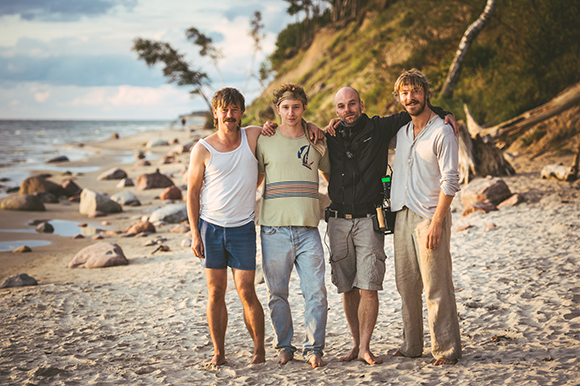 The comedy 12 Chairs / 12 kėdžių, directed by Algirdas Ramanauskas and produced & distributed by Film Jam, had more than 28,243 admissions and over 138,341 EUR gross from 23 December 2016 until the end of 2017.
The comedy 12 Chairs / 12 kėdžių, directed by Algirdas Ramanauskas and produced & distributed by Film Jam, had more than 28,243 admissions and over 138,341 EUR gross from 23 December 2016 until the end of 2017.
The tragi-comedy Miracle / Stebuklas, directed by Eglė Vertelytė and released by In Script,, had 14,341admissions and 71,184 EUR gross.
GRANTS AND NEW LEGISLATION
In 2017 the Lithuanian Film Centre supported the production of 34 feature films, documentaries, short animated films and interactive projects, as well as the preproduction and development of nine film projects and the distribution of six films. The Lithuanian Film Centre also supported the production of 17 projects dedicated to the 100th anniversary of the Lithuanian state.
The total funding for film production and development provided by the Lithuanian Film Centre was 3,599,560 EUR in 2017, compared to 2,568,616 EUR in 2016. The increase is 40 percent.
The annual state support that the Lithuanian Film Centre spent on the film industry in 2017 was 6,423,000 EUR, compared to 3,519,000 EUR in 2016.
The Lithuanian audiovisual industry depends on funds from the Lithuanian Film Centre, private funds, coproducing with foreign companies and pan-European film support initiatives such as the MEDIA Programme and Eurimages.
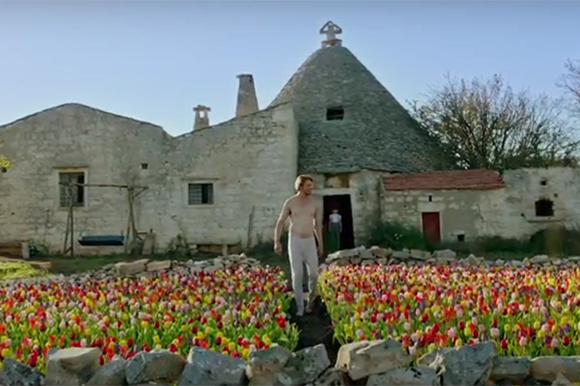 The Lithuanian Film Centre was launched in 2012 and is headed by Rolandas Kvietkauskas. The long awaited LFC was set up after an extensive lobbying by the Independent Producers Association of Lithuania and the Lithuanian Filmmakers Union. It has had a huge impact on the local industry, which previously lacked a central body to represent it. The LFC primarily finances film development, production and distribution in Lithuania and abroad.
The Lithuanian Film Centre was launched in 2012 and is headed by Rolandas Kvietkauskas. The long awaited LFC was set up after an extensive lobbying by the Independent Producers Association of Lithuania and the Lithuanian Filmmakers Union. It has had a huge impact on the local industry, which previously lacked a central body to represent it. The LFC primarily finances film development, production and distribution in Lithuania and abroad.
On 12 December 2017 the Lithuanian Parliament (Seimas) adopted a new Film Law. Since 1 January 2018, artistically valuable films spoken in Lithuanian can receive up to 90% of State support. In 2016, The Lithuanian Film Centre primarily financed up to 75% of film development or production. A feature film will get up to 725,000 EUR support. Coproductions may be granted up to 60%. Low budget and experimental film categories don‘t exist anymore. Germany, Estonia and Latvia are among the leading coproduction partners.
The new Lithuanian incentives scheme became operational in January 2014. The incentives scheme offers up to 20 percent of Lithuanian production budget. The minimum spend in Lithuania has to be 43,000 EUR. Minority coproductions are also encouraged to apply for the rebate, which is guaranteed through the end of 2018. The incentives scheme is administered by the Lithuanian Film Centre.
The Vilnius Film Office was established at the end of 2011. A public non-profit entity, the Kaunas Film Office, was established in 2012 as a result of a joint effort between the Kaunas municipality and the Kaunas Cinema Studio. The Vilnius Film Office and the Kaunas Film Office are members of the European Film Commissions Network.
 TV
TV
Lithuania’s public broadcaster Lithuanian National Radio and Television operates three national television channels, three radio channels and an internet portal. It also provides satellite and live internet broadcasts, radio and television podcasts.
Since 1 January 2015, the Act amending the Law on the Lithuanian National Radio and Television came into force. This act bans commercial advertising on all LRT radio and TV channels, but provides more sustainable funding from the state budget. The assigned funding is based on the state budget revenues from the income tax and the excise revenues received in two previous years. Its operations are overseen by the LRT Council. LRT joined the European Broadcasting Union (EBU) in 1993. LRT provides assistance to foreign broadcasting companies covering events in Lithuania.
TV3 is a television channel owned by Modern Times Group (MTG, Sweden) and targeted at the Lithuanian-speaking audience. It was founded on 7 May 1992 and launched on 11 April 1993 as Tele-3, before becoming TV3 on 8 June 1997.
LNK TV, also known as Laisvas ir Nepriklausomas Kanalas (Free and Independent Channel), is one of the major commercial TV channels in Lithuania. It was founded in 1995 as a part of MG Baltic Media. It has four sister channels: TV1, Info TV, Liuks! and BTV.
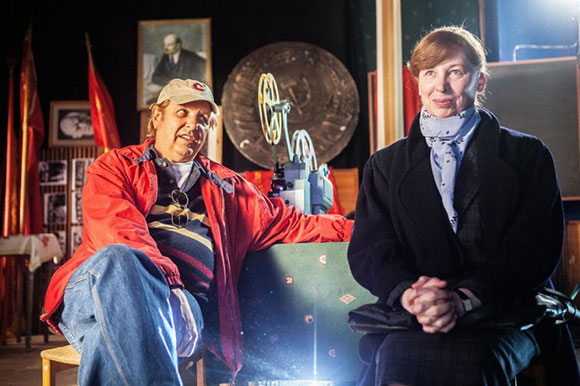 Lietuvos rytas TV is a Lithuanian entertainment channel founded in 2008 and airing approximately 55% of international programmes. In 2008 Lietuvos Rytas TV replaced the Lithuanian station Penktas Kanalas and it is part of the Lietuvos Rytas Media Group.
Lietuvos rytas TV is a Lithuanian entertainment channel founded in 2008 and airing approximately 55% of international programmes. In 2008 Lietuvos Rytas TV replaced the Lithuanian station Penktas Kanalas and it is part of the Lietuvos Rytas Media Group.
Launched in 2002, TV6 is a Lithuanian terrestrial, satellite and cable television channel owned by the Nordic television company Viasat.
In 2017 the Lithuanian National Television continued to air the historical drama Volunteers.The Price of Freedom / Savanoriai. Laisvės kaina and Partisans. The Price of Freedom / Partizanai. Laisvės kaina, both directed by Saulius Balandis and produced by Videometra.
Also in 2017 TV3 aired the 10th season of the most popular Lithuanian TV series Women Lie Better / Moterys meluoja geriau, directed by Raimundas Banionis and Mykolas Vildžiūnas, and produced by Videometra. Women Lie Better is the most popular Lithuanian drama of all time and it is based on a novel by Daiva Vaitkevičiūtė. The series follows four young women and their love interests.
Another very popular TV comedy series aired on TV3 in 2017 was Bruto and Neto / Bruto ir Neto, directed by Ričardas Vitkaitis and produced by Videometra.
CONTACTS:
LITHUANIAN FILM CENTRE
Zigmanto Sierakausko g. 15, LT-03105 Vilnius
Phone: +370 5 213 0547
Fax: +370 5 213 0753
Director Rolandas Kvietkauskas
This email address is being protected from spambots. You need JavaScript enabled to view it.
VILNIUS FILM OFFICE
Director: Jūratė Pazikaitė
Konstitucijos pr. 3-313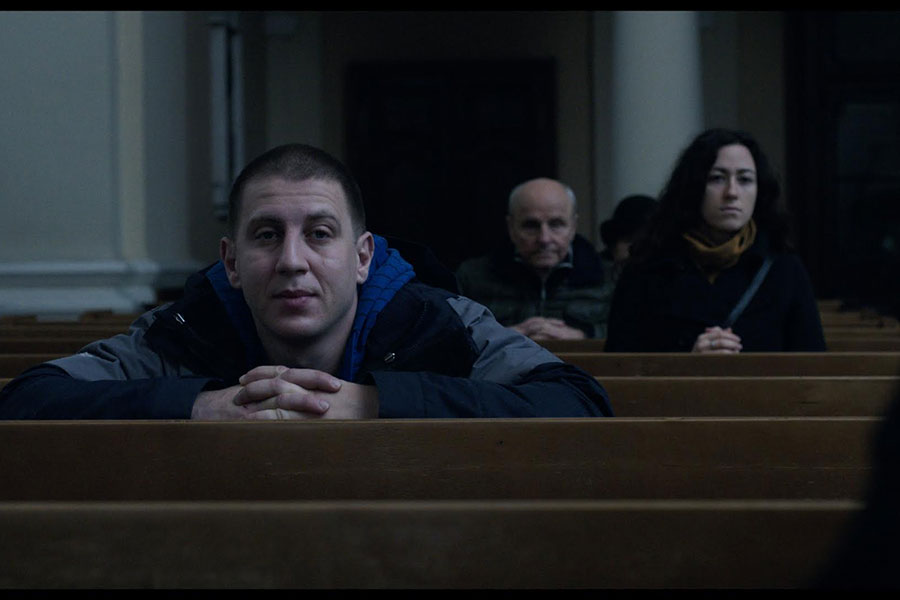
Vilnius, LT-09601
Phone: 85 211 2620
Mobile:. 8 614 04 696
This email address is being protected from spambots. You need JavaScript enabled to view it. This email address is being protected from spambots. You need JavaScript enabled to view it.
www.filmvilnius.com
KAUNAS FILM OFFICE
Darius Baltušis
Phone: +37069837732
This email address is being protected from spambots. You need JavaScript enabled to view it.
Laisves av. 54, 44246 Kaunas, Lithuania
www.kaunasfilmoffice.eu
Report by Auksė Kancerevičiūtė (2018)
Source: the Lithuanian Film Centre, Baltic Films

